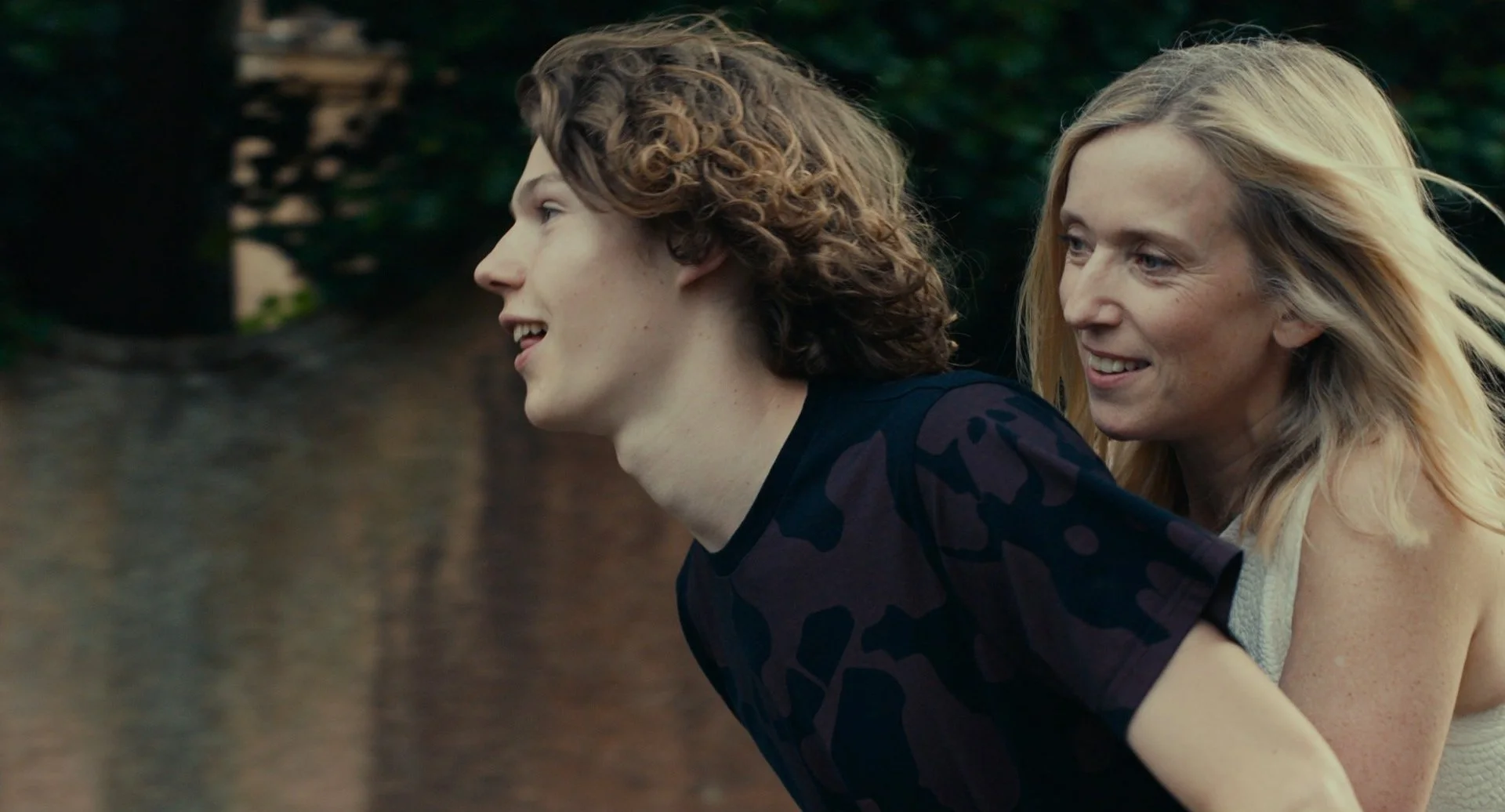Last Summer: When the Protector Becomes the Predator
Catherine Breillat's "Last Summer" is an intimately uncomfortable movie about power, and given what's happening in our world right now—from political coups to tech billionaires bullying their way into government—it's said a lot before those things actually came to pass.
Anne (Léa Drucker) is a lawyer who specializes in protecting vulnerable children. She's got the perfect life—loving husband, two adopted daughters, the works. Then her teenage stepson Théo (Samuel Kircher) moves in, and suddenly this guardian angel turns into something much darker. And here's the kicker: she uses every skill she's honed protecting kids to manipulate this one instead.
Samuel Kircher plays Théo, Anne’s rebellious and entitled stepson.
Sound familiar? It should. We're living in an era where the people who swear to protect us are often the ones burning everything down. Look at any major institution today—education, healthcare, politics—and you'll find power being weaponized by the very people who took an oath to serve.
Breillat's been dealing with complicated women for her entire career, but Anne might be her scariest creation yet. While Lydia Tár (from Todd Field’s 2022 "Tár”) uses the world of classical music to manipulate, Anne perverts something far more sacred: her role as a protector of children. That's not just predatory—that's evil with a capital E.
The film's visual language is brilliant in its restraint. When the older couple (Anne and her husband) are together, the camera barely moves—everything's locked down, controlled, proper. But when Anne's with Théo, the camera gets intimate, loose, alive. It's like watching someone shed their skin, except what's underneath is a monster.
Breillat doesn't waste time with the "will they or won't they" nonsense. She knows we know where this is going. What she's interested in is the mechanics of abuse—how someone with Anne's credentials can flip the script so completely. When her husband confronts her, we don't get a drawn-out melodrama. He makes his accusation, she reacts, and boom—suddenly he's crying on her shoulder, broken and in her palm.
This is the playbook we see everywhere now:
Gain position of trust
Break that trust spectacularly
Manipulate everyone into thinking you're the victim
Walk away scott-free
Anne herself drops the film's most chilling line about this: "Vertigo isn't the fear of falling. It's fear of the irrepressible temptation to fall." She's telling us flat out—she knows exactly what she's doing. Just like every politician who tweets "family values" while destroying families, every tech bro who talks about "connecting people" while mining their data, every institution head who preaches ethics while covering up abuse.
What makes Anne terrifying isn't the affair itself—though that's gross enough. It's her complete corruption of her professional identity. She doesn't just sleep with her stepson; she uses lawyer skills honed for protection to manipulate her entire family. In our current moment, this feels less like fiction and more like a documentary about how power operates.
The film's efficiency mirrors the way real abuse of power happens—no grand gestures, no mustache-twirling. Just small lies, tactical misdirections, and suddenly you're trapped in someone else's game where they hold all the cards.
By the end, Anne gets away with it, maintaining both her affair and her marriage on "shaky ground." Just like in real life, the powerful find ways to have their cake and eat it too, leaving a trail of damaged people in their wake. Théo learns what hurt is "like a badge," something to acquire and pass down. Generational trauma as inheritance—another pattern we see played out daily in headlines.
Breillat films abuse of power with the precision of a surgeon and the intimacy of a confessional. "Last Summer" isn't just about one woman's transgression—it's about how easily those entrusted with care can become the worst kind of threat. In our current political and cultural climate, that message hits like a exposed nerve.
Watch this film. Then look around. The Annes of the world are everywhere, and they're counting on us not to notice until it's too late.








